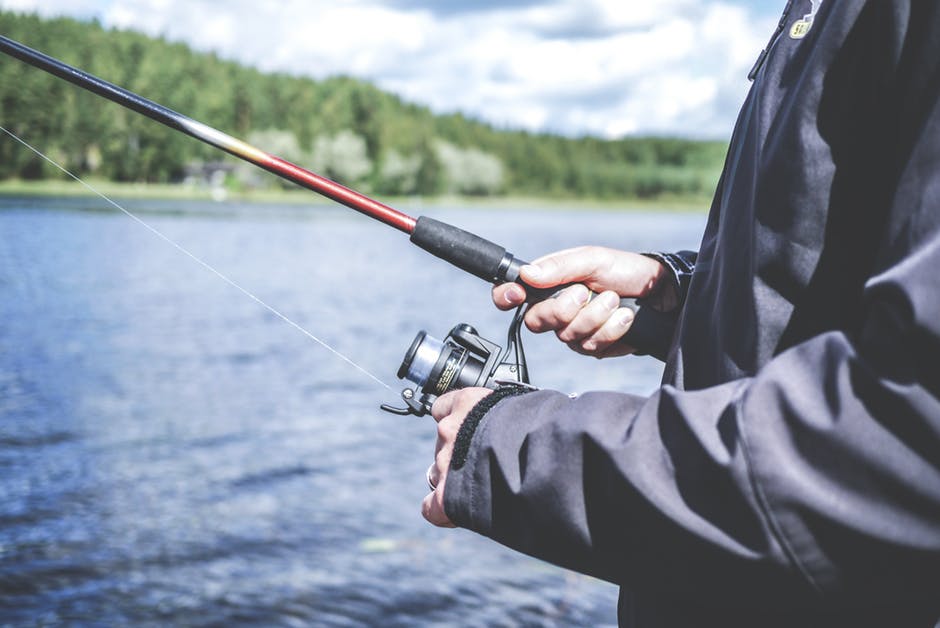The Donegal Game Anglers Federation (DGAF) have vowed to continue their battle against Inland Fisheries Ireland (IFI) this season.
The DGAF have noted that members of the IFI have used “bully boy tactics” in order to discourage from angling in the Gweebarra River. However the DGAF pledged to continue defending local anglers against the “ongoing harassment” of the IFI.
A spokesperson for DGAF said; “The Donegal Game Anglers Federation have and will continue to defend local and visiting anglers against ongoing harassment by Inland Fisheries Ireland since the dispute erupted on the Gweebarra River in 2006.
“The DGAF welcomed the huge victory in Dungloe court on March 14th last when over 150 anglers had their summonses for illegal angling dismissed.
“This long running battle between the state and local game anglers on the Gweebarra has dragged on since the first rejection of a state takeover of our fisheries without any consultation or regard for the local club angling rights.
“The local Rosses and Fintown Angling clubs with the full support of all local clubs and national federations succeeded in maintaining a long drawn out protest campaign to protect their waters from illegal state takeover despite IFI (Inland Fisheries Ireland) prosecuting some of our key members in the High Court in Dublin.
“Judging by the recent threatening statements it appears that these bully boy tactics are being continued by the state managers of our fishing but will once again fail to break the resolve of DGAF. It is noted from the Media Statements issued by IFI that they are of the view that the Gweebarra case continues in the High Court and remains unaffected by current issues.
“The current issues referred to relates to the withdrawal of the District Court cases on the Gweebarra and the fact that the seven Circuit Court Appeals relating to the Gweebarra will not be defended. The statement is confusing and certainly not designed to enlighten the public. Perhaps Inland Fisheries Ireland would simply confirm that in its view the Northern Regional Fisheries Board did have power to sue under the relevant Fisheries Acts prior to the dissolution of that body and its replacement by Inland Fisheries Ireland. Inland Fisheries Ireland needs to address that salient issue because if there is no power to sue in the acts that predate the Inland Fisheries Act 2010 the proceedings that were issued in the High Court in 2009 are doomed to fail.
“There is power to sue in the Inland Fisheries Act 2010 but the High Court proceedings were not issued under that Act but under the Acts that predate it and not in the name of Inland Fisheries Ireland but in the name of its statutory predecessor Northern Regional Fisheries Board.
“The following comments of IFI in the Media Statement are not very revealing and in fact could be construed as possibly misleading.
Tags:“Inland Fisheries Ireland will continue to apprehend individuals who are in breach of fisheries legislation and prosecute them once the appropriate amended legislation is in place. All current provision and offences of the Inland Fisheries Acts continue in full force and effect. The Department has advised that it is intended that amending provisions will be in place within a matter of week. Anyone who commits an alleged offence will still be liable to prosecution.”
“It is not clear when IFI was made aware of the prosecution lacuna in the law by the Department or with what urgency the matter has been dealt with since it has been made so aware. The inland fisheries of Ireland are now, unfortunately, unprotected by the State.
“IFI should acknowledge that that is the fact of the matter and take concrete steps to address the urgency of the problem rather than issue statements based on pure and unadulterated fantasy. It would be nice if the comments of IFI were true but regrettably they are not.
“An act of poaching that cannot be prosecuted is not an offence. And not even a considerable capacity for self delusion on IFI’s part will change that fact. No prosecutions will take place until the new legislation is in place.
“Criminal Legislation having a retrospective effect is prohibited by our Constitution and in any case frowned on by the Courts generally by current issues.








